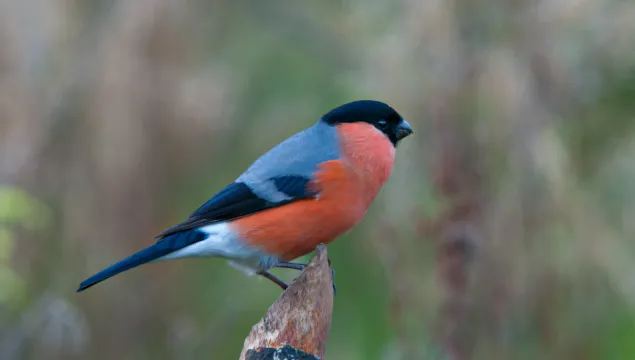
Bullfinch
The rose-red breast, large black cap and thick bill make the bullfinch easy to identify. A plump-looking bird of woodlands, hedgerows and orchards, it also frequents gardens.

The rose-red breast, large black cap and thick bill make the bullfinch easy to identify. A plump-looking bird of woodlands, hedgerows and orchards, it also frequents gardens.
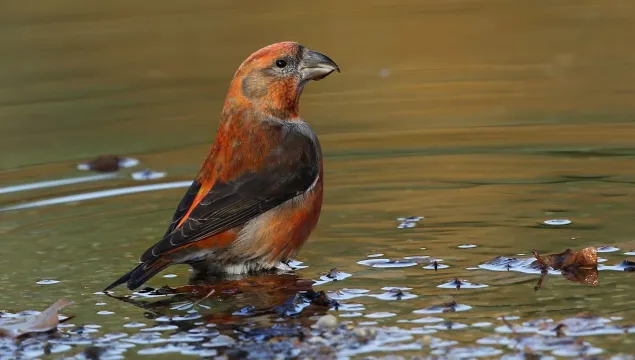
As it names suggests, the common crossbill has a large bill that is crossed at the tip - perfect for picking the seeds out of pine cones. Look for it in conifer woodlands, mainly in the north and south.
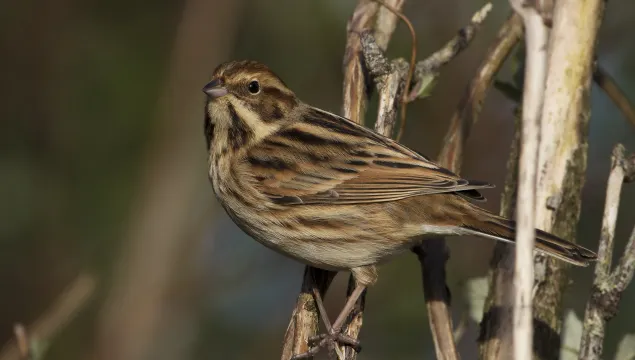
A streaky brown bird, the reed bunting can be found in wetlands, reedbeds and on farmland across the UK. Males sport black heads and a white 'moustache'.
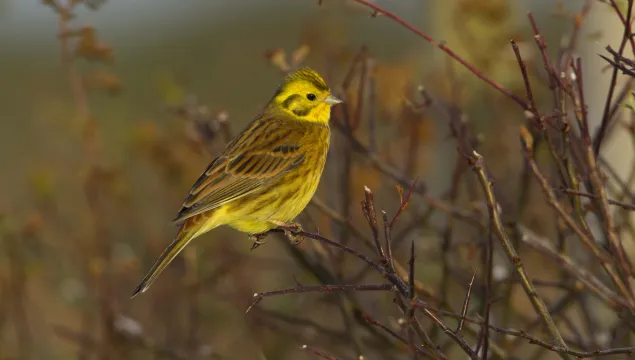
Like many of our farmland birds, the yellowhammer has declined in number in recent years. Spot this bright yellow bird singing from the top of a bush or fence, or in a mixed-species flock in winter.
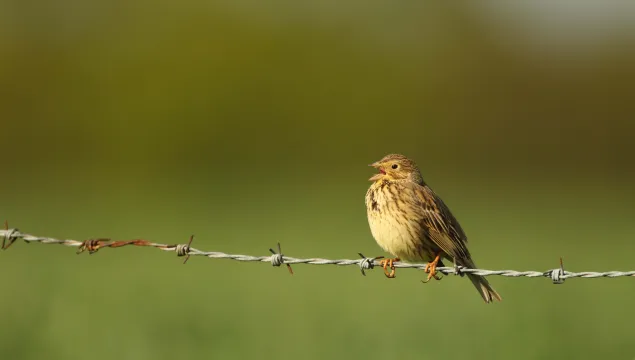
Like many of our farmland birds, the corn bunting has declined in number in recent years. Spot this streaky brown, thick-billed bird singing from a wire or post - it sounds just like a set of jangling keys!
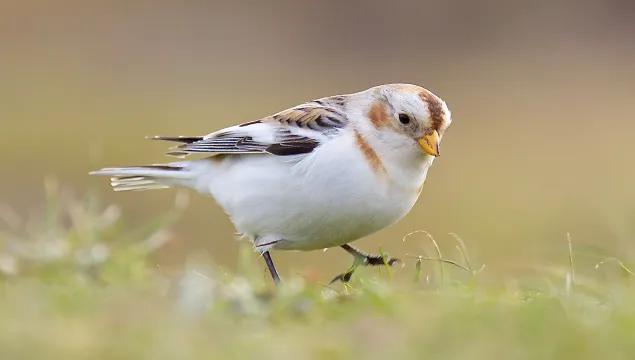
Only a few pairs of snow bunting breed here, so look out for this striking black-and-white bird in winter around Scotland, the North West and the East coast of England.
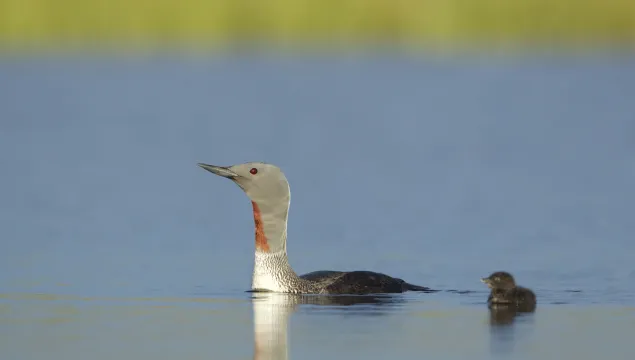
The red-throated diver lives up to its name - the distinctive red patch on its throat heralds the breeding season. In summer, it nests in Scotland, but look out for it around the UK's coast during winter.
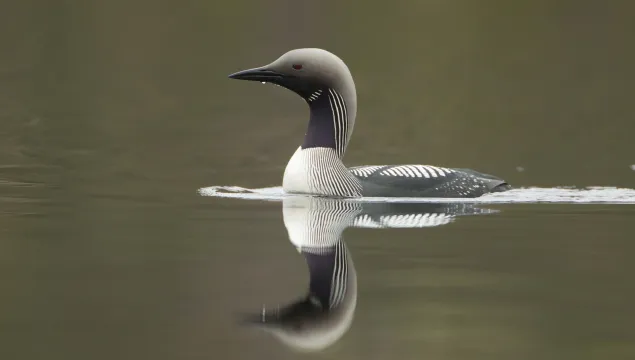
The streamlined black-throated diver is a superb swimmer and diver, but not so graceful on land! During the summer, the distinctive black patch on its throat appears, heralding the breeding season.
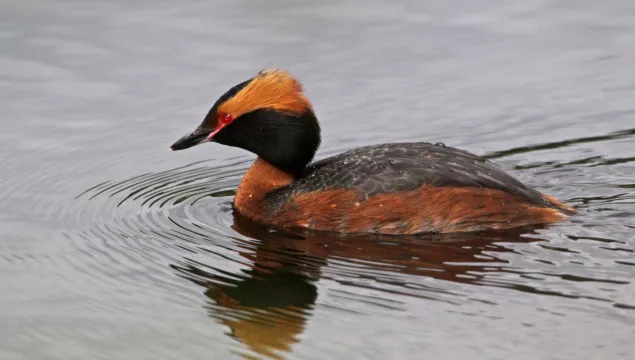
The rare Slavonian grebe is an attractive diving bird with distinctive, golden ear tufts that give rise to its American name - 'horned grebe'.
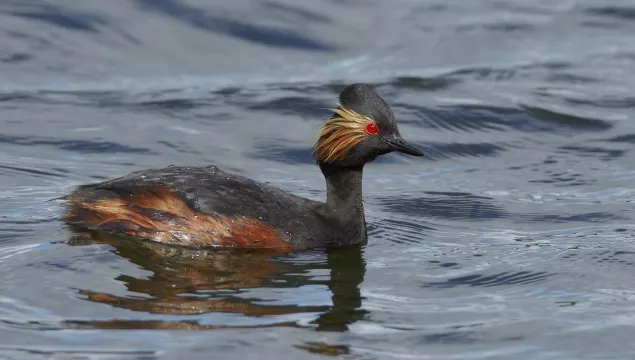
Known in America as the 'Eared Grebe' because of its golden ear tufts, the black-necked grebe is a rare nesting bird in the UK. It is easiest to spot around southern coasts in winter.
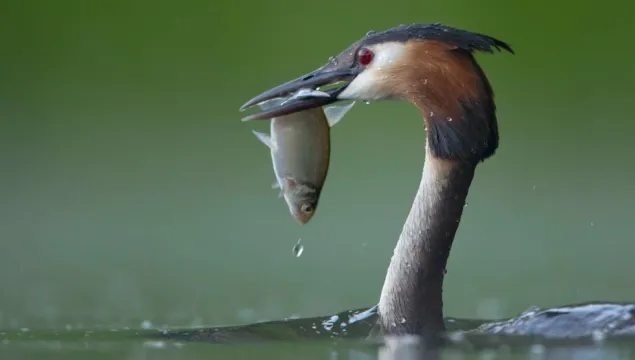
The graceful great crested grebe is a familiar sight on our lakes and reservoirs, and is well-known for its elaborate courtship dance, during which it rises vertically out of the water and shakes its head.
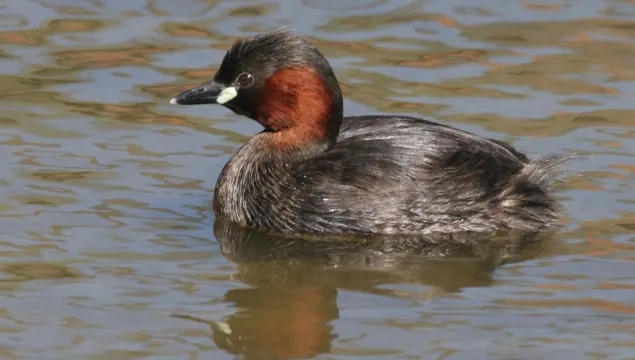
The little grebe is a fantastic diver, but to help it swim underwater, its feet are placed towards the back of its body, making it rather clumsy on land. It only really comes ashore to breed.